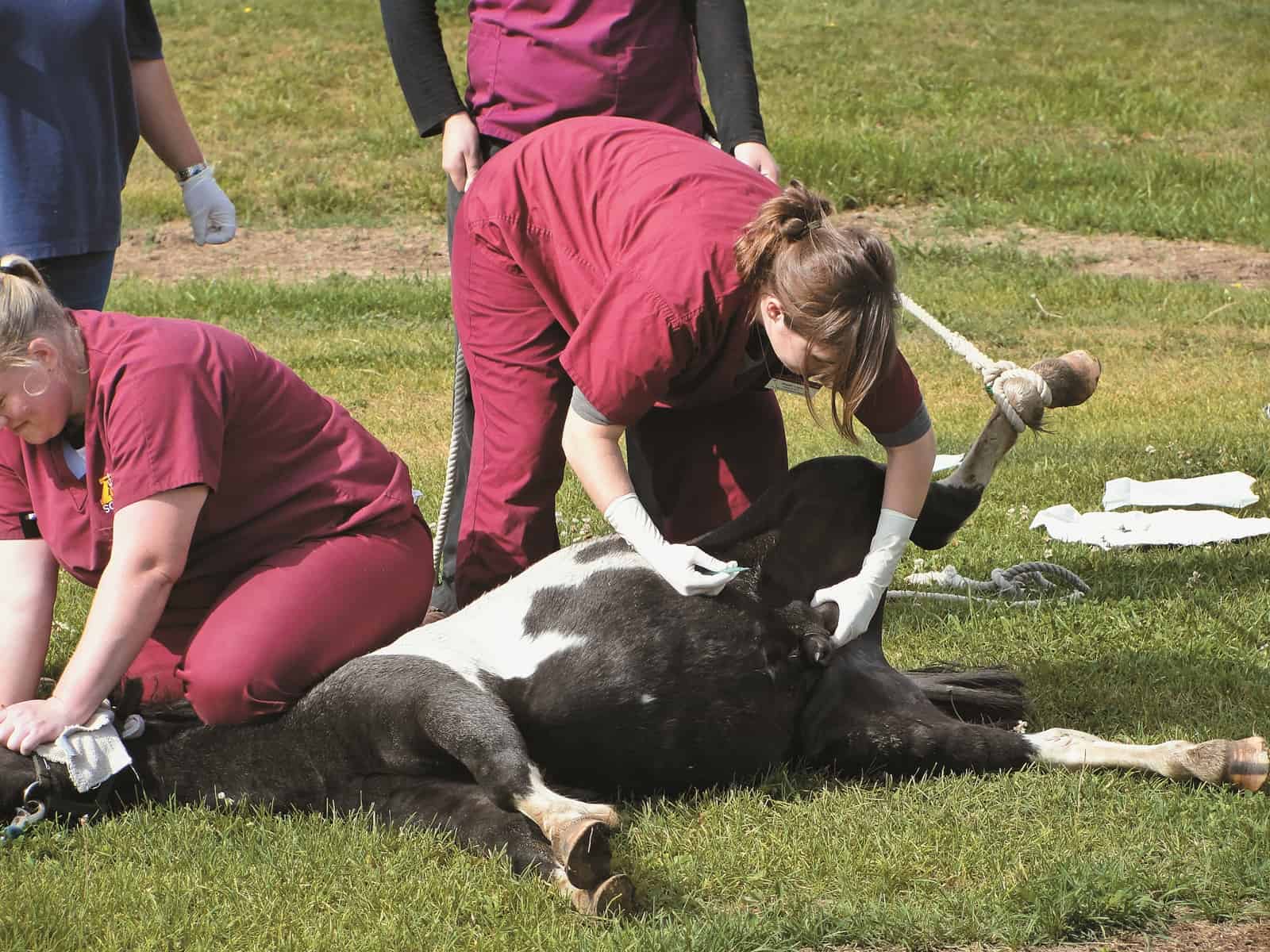Horse Castration: Severe Complication More Common in Certain Breeds, Cases

In theory—and in many cases—castration is a straight forward procedure: sedate or anesthetize horse, remove testicles, and use proper precautions to help the recovery go smoothly. But not all horses have it so smoothly. In fact, researchers have learned that some horse breeds appear more prone to complications, the most serious of which is evisceration—when the intestines protrude through the surgical site—which can be fatal if not promptly treated at a surgical facility.
John Haffner, DVM, an associate professor at Middle Tennessee State University, in Murfreesboro, wanted to learn more, so he conducted an online survey of veterinarians about their experiences castrating horses. He shared the results at the 2018 American Association of Equine Practitioners Convention, held Dec. 1-5 in San Francisco, California.
“If we know which breeds and methods are more prone to evisceration, we can be better prepared for complications,” he said
Create a free account with TheHorse.com to view this content.
TheHorse.com is home to thousands of free articles about horse health care. In order to access some of our exclusive free content, you must be signed into TheHorse.com.
Start your free account today!
Already have an account?
and continue reading.

Written by:
Erica Larson
Related Articles
Stay on top of the most recent Horse Health news with















